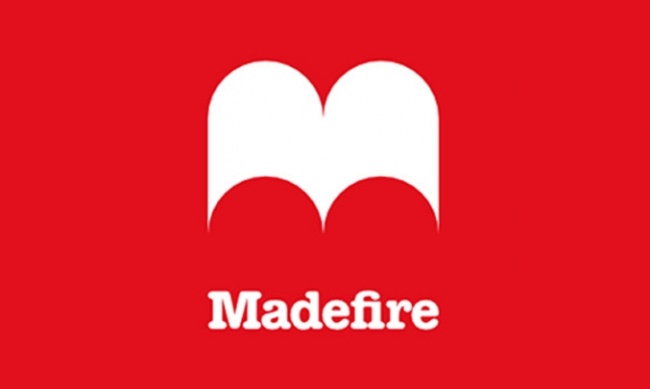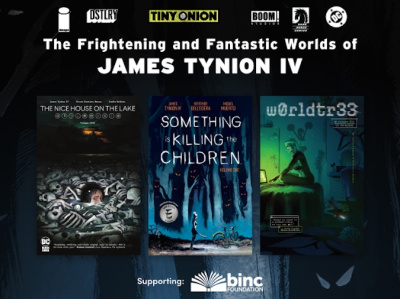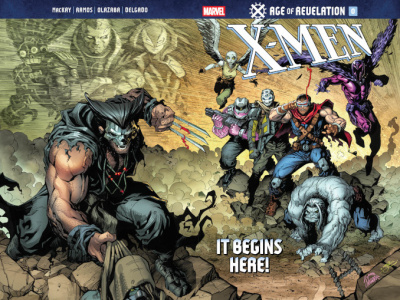Last week, Madefire announced a big new addition to its digital comics marketplace: an “extensive lineup of new and backlist DC titles,” including DC’s hotly-anticipated Dark Nights: Metal series. That represents a significant content infusion for the platform that has been trying to establish itself as an alternative to Amazon’s comiXology in the digital arena since 2011.
The Madefire announcement calls attention to the digital market which has stagnated a bit under one party rule, and may get the competitive juices flowing a bit. However, the real challenges for comiXology are elsewhere.
DC Diversifies. According to the announcement, “thousands of titles featuring the world’s greatest Super Heroes from DC’s beloved back catalogue will soon be available on the Madefire App… Comprising the single biggest update of new content since the platform launched, Madefire will host more than 80,000 comics and Motion Books by 2018.”
Madefire has been hosting a small number DC titles for several years in the company’s deluxe Motion Book (digital comics with added effects and sound) format. The new material is what Madefire calls “print books” – essentially PDFs with nothing added, not even some version of the panel-by-panel Guided View experience offered on comiXology.
Barring special promotions, each comic is individually priced. If you are waiting for DC to offer its own alternative to Marvel’s all-you-can-eat Marvel Unlimited subscription, you’ll have to keep waiting.
For change’s sake. It’s hard to say what Madefire brings to the table besides the advantage of being not-Amazon. Their app is available on Windows, Apple TV and Android TV, unlike Comics by comiXology, although there are work-arounds for getting comiXology content on those screens if you really want to. More significantly, Madefire still offers in-app purchasing on iOS, which a lot of customers miss. But their market share is so small relative to cX and Kindle that it’s unclear how much of a benefit that will be to DC.
Madefire has also been more willing to experiment in delivery formats. While comiXology CEO David Steinberger is an avowed believer in the basic comic book format, and strives to keep that reading experience at the center of cX’s technology approach, Madefire has pushed the envelope with motion books, panoramic and immersive transformation of the artwork, subtle sound design, and recent excursions into the world of virtual reality.
Again, that has not translated much to the bottom line. Madefire’s app is highly rated by users, but barely charts on App Annie’s revenue metrics, whereas Amazon, between cX and Kindle, probably accounts for upwards of 90% of the $90M digital comics market.
Small screens, big picture. Madefire’s announcement would have made a bigger splash in 2012 or 2013, when there was still vibrant competition and sky’s-the-limit growth in the digital comics space. Today, Amazon enjoys so many structural advantages that it’s hard to see how any developments in terms of publisher or partnership agreements could alter the fundamentals of the market, short of Marvel pulling its titles from cX and moving them to another platform altogether. And that is… unlikely.
The competitors that Amazon worries about are Google, Apple, and maybe media giants like Comcast, none of whom have been able to make much of a dent in the digital comics space. The reason they worry isn’t necessary that those companies will steal a slice of the comics pie from Amazon. Total up every digital comic sold worldwide and it still amounts to a rounding error in Amazon’s quarterly report.
However, the comic customer is a proxy for the much larger licensed merchandise consumer and media fan market. To the extent that you know who comic readers are, what they like, what else they like, and how they find new things to like, you have a window into the mind of the hardest core of fandom. ComiXology knows. They have the data.
Amazon’s challenge is to turn that data into insights that can help them outgun Netflix on original content, cross-sell comics and related merchandise across all categories, and mobilize global audiences in all kinds of interesting and lucrative ways. Madefire does not threaten that, even if they could get Marvel on board as well as DC, and even if they sold themselves to Google tomorrow.
Discovery is the next battleground. The most interesting questions on the digital side are how you get the new customers onto your platform and help them find the content they want. Just look at everything comiXology is doing and saying about expanding the market; they understand this is the real venue where the future of comics will be decided (see "Interview with ComiXology CEO David Steinberger").
Platforms like Tapas, which offers a range of webcomics and exclusive digital content in a vertically-scrolling, mobile-friendly format; and Crunchyroll, which features streaming manga and anime content, seem much closer to figuring this out and thus more threatening to the incumbents.
The bottom line is that if you are still fighting over DC customers, you are fighting the last war. Comics for kids, tweens, teens and YA content is reaching customers way outside the traditional market, and those customers are the future.
Every year that passes, the new audience gets bigger, more diverse, more intense, and more affluent. They buy more stuff from more channels and express their fandom in lots of public, visible ways. Every year that passes, DC’s customers get a year older.
Having DC on board is more helpful to Madefire than not having them, just as being on Madefire is marginally more helpful to DC than being stuck with one primary digital outlet, but it does not bring either of them closer to disrupting comiXology’s hold on the market. That disruption, I expect, will come from somewhere completely unexpected.
Rob Salkowitz (@robsalk) is author of Comic-Con and the Business of Pop Culture.
The opinions expressed in this column are solely those of the writer, and do not necessarily reflect the views of the editorial staff of ICv2.com.

Column by Rob Salkowitz
Posted by Rob Salkowitz on August 22, 2017 @ 4:47 am CT
MORE COMICS
From Tiny Onion, Dynamite, Image, IDW
July 18, 2025
There are four Humble Bundle deals running right now, from Tiny Onion, Dynamite, Image, and IDW.
From Marvel Comics
July 18, 2025
Age of Revelation, a new status quo taking place 10 years into the future and arising out of current developments in the X-Men titles, begins in October.
MORE COLUMNS
Column by Rob Salkowitz
July 14, 2025
Superman isn't a character who needs a general introduction to the broader public; he just needs an existing global fanbase to take a fresh look.
Column by Scott Thorne
July 14, 2025
This week, columnist Scott Thorne discusses Green Ronin Publishing's GoFundMe to fund its legal fight against Diamond Comic Distributors, and the soft preorders for the latest Horus Heresy box.








